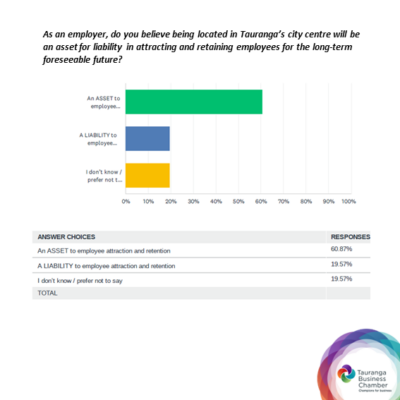Chamber member Holland Beckett Law, in partnership with a panel of experienced arbitrators, has developed a speedy cost effective procedure to deal with disputes over rent abatement.
Associate James McDougall, with Senior Solicitor Rebecca Steens, provide advice and guidance on this issue.
The Government restrictions at Alert Level 4 have resulted in the closure of physical premises for all non-essential businesses. With the recent move to Alert Level 3, many commercial premises are able to partially reopen, although operations are still limited depending on the nature of the business.
Restrictions to access are having a fundamental impact on tenants and landlords alike. Tenants are unable to operate fully and their revenue and cashflow is significantly affected. For some, this may mean an inability to meet their current rent and other liabilities, which in turn has a significant impact on the landlord’s own business.
Access restrictions are contemplated in many current commercial leases. The ADLS form of lease (among the most common) contains provisions relating to rent abatement during times of limited or no access. Where a lease contains such a provision, tenants and landlords can attempt to reach an agreement regarding what rent is fair in the circumstances.
Fairness implies an assessment of both parties’ positions. Accordingly, the effect on the landlord ought to be considered as well as the tenant. In some circumstances, despite a tenant having no access, they may still receive some benefit from the lease.
The extent to which the tenant has access is critical. Rent deduction ought to be assessed by reference to the extent to which the tenant is unable to access the premises and accordingly unable to fully conduct its business as a consequence of no access.
For essential businesses the position is more complicated. The business may only need to operate from some of its premises (in order to deliver or perform the particular service) or may only be using part of the premises because of reduced numbers of staff working.
A tenant operating an essential business may argue that it is entitled to a rent and outgoings reduction for the portion of the premises that it is not operating from (or is only partially operating from), which may arise because the tenant is only permitted to use premises to the extent necessary in connection with its ‘essential service’.
In many cases we are seeing a pragmatic approach to the unique situation and rent holidays, abatements and deferrals being agreed, regardless of the terms of the lease and whether the tenant is entitled to an abatement. Many landlords and tenants have reached an agreement on abatements on a “without prejudice” basis, seemingly to allow either party to reconsider their position at a later date. In other cases, tenants have continued to pay rent on a without prejudice basis pending determination of what is fair.
So far Government proposals have not provided compensatory support for commercial landlords and tenants, but have changed certain legal provisions which allow greater time for negotiations before landlords exercise their rights to cancel a lease for failure to pay rent. As of 27 April, landlords are required to give 30 working days’ notice before effecting cancellation of a lease for non-payment of rent. These changes have retrospective effect and apply to any notices issued from 25 March.
These changes provide temporary relief to tenants and allow more time for negotiations and, failing that, some sort of formal dispute resolution process to ascertain fair rent during the time of the Alert Level 4 and Level 3.
We are yet to see what further guidelines/changes the Government will implement. The Government has indicated, for instance, that it is looking to step in and force landlords to reduce the rent for these types of situations.

Compromise
There are three key considerations which apply equally to all tenants and landlords when looking to compromise or reach a resolution regarding rent:
- The payment of rent is one of the fundamental obligations under a lease. The starting point is that tenants are required to pay rent in accordance with the agreement reached with the landlord and the terms of the lease.
- Prevention of use and access does not automatically mean a reduction in rent. What is fair and reasonable will depend on the circumstances.
- Altering rent (both reducing or increasing it) can only occur two ways:
- By negotiation and agreement between the parties, or in accordance with the agreed terms of the lease (i.e. CPI rent increases).
- Independent determination by an arbitrator.
Regardless of whether the lease contains an abatement provision (such as the ADLS 6th edition), parties are looking to share the pain and negotiate in good faith. However, we are increasingly seeing that landlords and tenants are unable to reach an agreement.
Rent Relief Disputes
Where the parties cannot agree what is a fair abatement, rent will need to be determined.
Almost all leases contain provisions which allow for the parties to refer disputes to arbitration. However, arbitration in its usual form can be costly and time consuming. Tenants and landlords should explore settlement options which focus on:
- Quick resolution;
- Minimal cost/resource; and
- Preserving the relationship between landlord and tenant.
Ultimately, landlords and tenants need to find ways to resolve their disputes which are proportionate to the sums involved. Such processes need to be undertaken with the recognition that the circumstances giving rise to a need for rent abatements are (hopefully) temporary.
Holland Beckett Law has developed a speedy and cost effective procedure to provide tenants and landlords alike with the certainty required to resolve the dispute and maintain the long term landlord/tenant relationship. This procedure involves a dedicated panel of independent arbitrators, and aims to achieve a swift and fair resolution of commercial rent disputes.
If you would like more information on our Rent Relief Dispute Procedure, please contact us.
















































